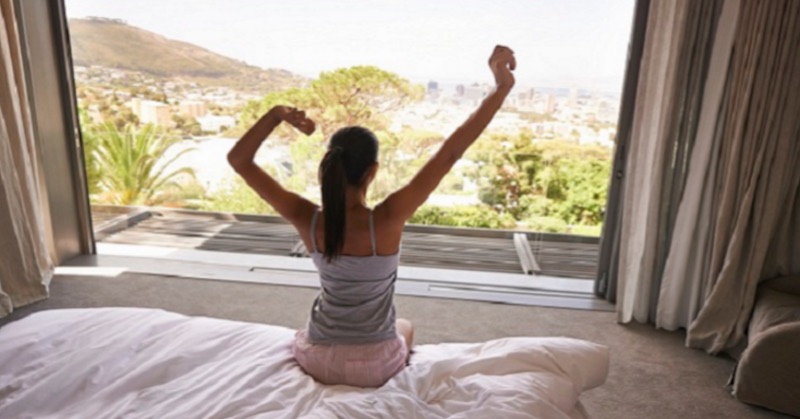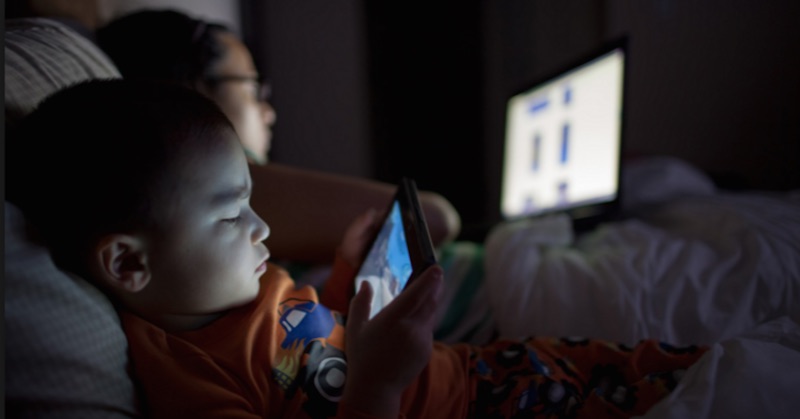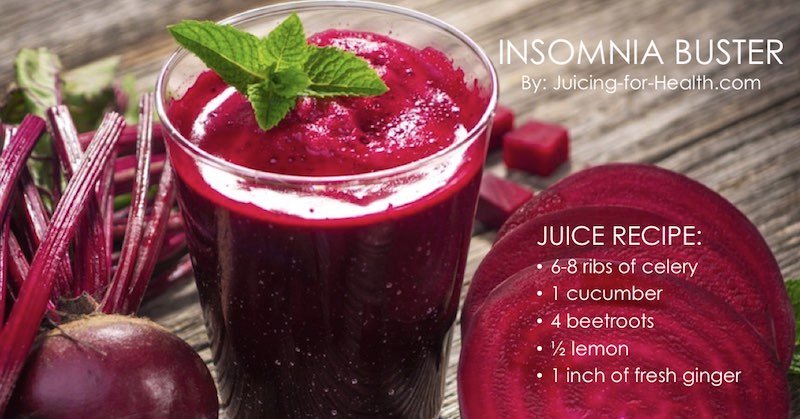Methods To Getting Better Quality Sleep, And Waking Up Refreshed
Last updated on
A productive day starts with a great morning, and you can’t have a great morning if you didn’t get any rest the night before. This simple five-part formula will help you get to bed earlier, sleep better, and wake up feeling rested.
If you want a simple approach to sleeping better and taking control of your mornings, Fitness coach Craig Ballantyne at the Early To Rise blog recommends you follow the “10-3-2-1-0″ formula:
- 10 hours before bed: No more caffeine
- 3 hours before bed: No more food or alcohol
- 2 hours before bed: No more work
- 1 hour before bed: No more screen time
- 0: The number of times you hit the snooze button in the morning
If you wake up on time and rested, you won’t feel like you have to play catch-up all day. When you dominate your mornings, you won’t have to deal with anxiety and stress in the afternoon. There are plenty of things you can do to get better sleep each night, but this formula encapsulates some of the more important, science-backed aspects and makes it all easy to remember.
Below is a LifeHacker’s article.
Hard Time Getting Enough Sleep
Let’s make sure we’re on the same page from the start: You need sleep, and odds are, you may not be getting enough as it is. This guide will help you improve the quality of your sleep, so you can survive on less, but it’ll be useless if you don’t know how much sleep is right for you to begin with.
The truth is, each of us needs a different number of hours of sleep to be productive, and the whole “8-hour” thing is more of a guideline than a rule. In fact, some research suggests that sleeping too much can actually be harmful to your health.
We’ve discussed how to get on a good sleep schedule and ditch a dysfunctional relationship with sleeping, so if you’re having trouble sleeping, make sure to follow that guide first.
Our goal in this post is to walk you through improving the sleep that you get to the point where you can fine tune and dial back the number of hours that you get, to match what you really need. You’ll spend less time tossing and turning, and more time getting truly restful sleep.
Better Sleep More Important Than More Sleep
We frequently hear about the dangers of too little sleep, but there’s also research to suggest too much sleep is a problem too. One study published in the Journal of Psychosomatic Research concluded that quality of sleep is more important than quantity of sleep when it comes to feeling rested and rejuvenated.
So where does that leave us? First, start tracking your sleep, and find your perfect bedtime. There are great apps that can help. Eight hours of sleep is worthless if you spend all of it tossing and turning, or you only sleep for about 3-4 hours of it.
Trying to fix poor sleep habits by going to bed earlier is like trying to lose weight by spending more time at the gym without actually changing the duration of your workout. Once you’ve learned to optimize your time, you’ll see better results.
Keys And Methods To Getting Better Quality Sleep
Optimizing your sleep depends heavily on three things:
- Preparation (building good sleep habits)
- Environment (tweaking your surroundings for optimal sleep)
- Timing (getting the sleep you need when you need it).
We sat down with Dr. Nitun Verma, MD, a Stanford University trained specialist in sleep medicine and Medical Director of the Washington Township Center for Sleep Disorders in Fremont, to come up with some tips to help you improve the quality of your sleep so you’ll need less in the long-term.
Preparation
The first step is to build the habits that will help you fall asleep faster, stay asleep longer, and be more comfortable while you rest. For example:
- Exercise regularly. The goal here isn’t to wear yourself out, but The National Sleep Foundation has said exercise in the afternoon can improve sleep in the evening. Specifically, morning or afternoon exercise helps you fall asleep faster with less trouble. Just be sure not to exercise right before bed, as that had the opposite effect.
- Set a kinder, gentler alarm. Ditch your incredibly loud, annoying alarm clock and try something new that will make waking up easier and more natural. Grab an alarm clock app that will wake you to music or soothing sounds, or try a wake-up light that slowly rises the light level in the room as you approach your wake-up time.
- Ditch the alcohol, cut out the caffeine, and watch the cigarettes. This one study, published in 1994, approached all three topics, and concluded that alcohol can be relaxing and help you get to sleep, but it’s damaging to the sleep cycle once you’re out. The end result is a choppy, restless night where you wake more frequently than you would. Caffeine has a different effect. It lengthens the 2nd phase of your sleep cycle (where your brain starts reorganizing itself and processing the day)—which is great for naps, but not for a night of deep sleep. Caffeine shortens phases three and four, where REM sleep and dreaming occur. Cigarettes on the other hand, or specifically nicotine, can be relaxing in small doses, but too much keeps you awake and prevents the onset of sleep entirely.
- Cut back on screen time. We’ve mentioned it before, but study after study all point to the notion that electronic devices harm our sleep cycles. Dr. Verma suggested turning off your gadgets at least 1-2 hours before bedtime, even those e-ink devices. Two hours is best, but admittedly impractical for many people. “The screens on tablets/phones/tv’s are so bright, that they can confuse the brain’s suprachiasmatic nucleus, or SCN,” he explains. “Bright light too late at night can confuse the brain into thinking it is 2pm when it is 2am. Even if sleep occurs, it will not be as deep, and therefore, less restorative.”
- Meditate before bed. We’ve shared one sleep-oriented meditation method designed to help you fall asleep, but there are many others. Try visualizing a dream you’d like to have, or if you’ve woken up in the middle of the night, relax, focus on sleeping, and try to visualize where your dream left off.
- Improve your evening ritual. Your evening ritual is important, and if you’re not working in everything from a snack (you don’t want to go to bed hungry, you’ll wake up or sleep restlessly) to going to the bathroom (waking frequently to go to the bathroom can lead to shallow sleep all night and throw off your sleep cycle), you may suffer for it. Start a healthy “sleep routine” of winding down that starts long before your head hits the pillow.
Environment
Before you lay down to sleep, you should also make sure your environment is conducive to a good night’s rest:
- Make sure your bed is actually comfortable. We’ve said this several times before, but put your money where your time goes. Since most of us will spend an average of 24 years of our lives sleeping, your bed deserves serious investment. Buy the right mattress, pick some good pillows, and pick up some good high thread-count sheets. Don’t underestimate the power of a more comfortable comforter, a pillowtop over your old mattress, or even a cooling pillow. Your bed is important, and you should make sure it improves your sleep, not hinder it.
- Adjust the temperature. Some studies have shown that optimal sleeping temperature for most adults is between 60 and 68 degrees Fahrenheit. Too much warmer than that and you start having difficulty with insomnia. Again, studies say one thing, but find your sweet spot—sometimes a cool room and a hot water bottle in bed, or maybe a fan going over your body is all you need to feel just right.
- Filter out the light. LEDs and standby lights from electronics can cause just as much havoc with your sleep cycle as a glowing phone or tablet screen. We’ve already banished your electronic devices—or at least turned them off, but make sure to cover up that pulsating light on your laptop while it’s charging too. Cover up those lights on your cable box, TV, or any other devices in standby near your bed while you’re at it.If you live somewhere lit at all hours like I do, invest in a sleeping mask. Whether you shell out for the expensive adjustable kind that mold to your face and have cushions or just grab a dollar-store mask that’s essentially cloth with an elastic band, it’ll work wonders for your sleep. Plus, if you work off-hours and have to sleep through sunrise or during the day, it’ll help you get better rest.
- Cut out the distractions. Kids waking you up? You may not be able to do much about that, but if your phone is waking you up, buzzing with notifications or new emails, it’s time to turn it off, set some quiet hours, improve your notifications so they help you sleep, or just set it to silent when you go to bed. If your neighborhood is noisy and that keeps you from sleeping, try a white noise generator or some soothing music to drown it out and help you rest.
Timing
You already know that how long you sleep is important, but for the best possible sleep, you really should go to sleep and wake up at the same time every day. The debate rages over the concept of “sleep debt” and whether it can be “paid off” by sleeping in, and different experts say different things about it.
Dr. Verma suggests an alternative: “An often overlooked way for people to optimize their sleep is to wake at the same time every day, or at least within the same hour. So rather than oversleep on off days, waking at the same time and then taking a nap allows the extra sleep without disrupting the normal wake/sleep schedule.”
He continues, “Many of my patients have such a different weekday/weekend wake schedule that they are experiencing the same sleepiness that people who are jet-lagged. Even two hours difference hurts, especially if they are already sleep deprived.” If that’s the case, and you still don’t want to adjust your sleep schedule, maybe our tips on beating jet lag can help.
Related: How sleeping according to your meridian clock can superboost your healing.
Get Help From the Experts
Finally, if you’re having trouble getting quality sleep, or even if you sleep for long periods and don’t feel rested, it may be time to talk to your doctor. There could be any number of medical issues causing your sleep problems, all of them treatable.
You may be suffering from chronic insomnia, which is treatable with fresh juices. You could also be suffering from sleep apnea, or some other condition that, once treated, can turn the hours you get into the most restful you’ve ever had. Ultimately, the only way to know for sure is to check with your doctor, and possibly submit to a sleep test that’ll settle the issue once and for all.
Once you have your sleep issues sorted out, whether by the professionals or through our tips above, you can start to fine-tune the amount of sleep you actually get to make sure you only take away as much as you actually need.
If you’ve been sleeping nine or ten hours because it’s the only way to feel rested, but once you start wearing a mask and ditching the gadgets before bed, you find that you feel just as rested after eight, you can start to edge back to see what happens.
Bonus: you’ll get two extra hours in your day to do the things you want to do, and your mind and body won’t be worse for the wear as a result.
Source:
Lifehacker.com in partnership with FamilyLifeGoals.com.
Some of the links I post on this site are affiliate links. If you go through them to make a purchase, I will earn a small commission (at no additional cost to you). However, note that I’m recommending these products because of their quality and that I have good experience using them, not because of the commission to be made.




































 JOIN OVER
JOIN OVER
Comments